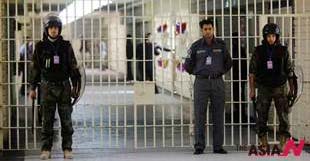On one hand, why ISIS is so brutal does not make sense. Yet, with a deeper analysis, it does. Just when we think ISIS cannot horrify us more than they have, they top themselves. The latest example is the video showing the Jordanian pilot Moath al-Kasasbeh burned alive.
Cruelty has been used as a tool to intimidate your enemies in war for as long as humans have been fighting wars. Extreme brutality communicates fearlessness and that means a psychological advantage over your enemy. Thus, the group has managed to conquer large parts of Syria and Iraq, i.e. with a methodic strategy of barbarism and an efficient plan.
But all this needs a justification, not only on a general level, but on an individual level as well. ISIS has religious justifications to a war to return the reign of an Islamic caliphate and impose what the Quran’s dictates, thus giving their actions moral and theological clearance.
Interestingly, this is not the first time barbarism has been used as a war weapon. In the Middle Ages, the Inquisition announced extreme punishments for those against the Catholic Church’s hold. In Cambodia, millions were killed by the Khmer Rouge, as they sought to build a communist utopia. Extermination camps in Germany built by Nazis to “wipe out” inferior beings, and the genocide in Rwanda, where nearly a million people died due to ethnic hatred, are only some of the examples.
The common denominator is the need for an ideology to justify war and brutality: an ideology that allows sacrifice of mankind to achieve a “higher” purpose. Usually, the vision of a “higher purpose” means a perfect world without disagreement to the ideology, with no tolerance and sympathy towards non-believers of the said ideology and which serves as the ultimate justification for any kind of cruelty and violence.



